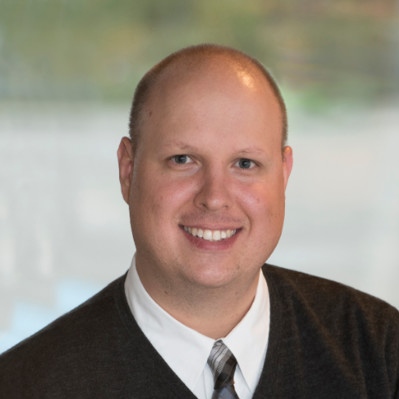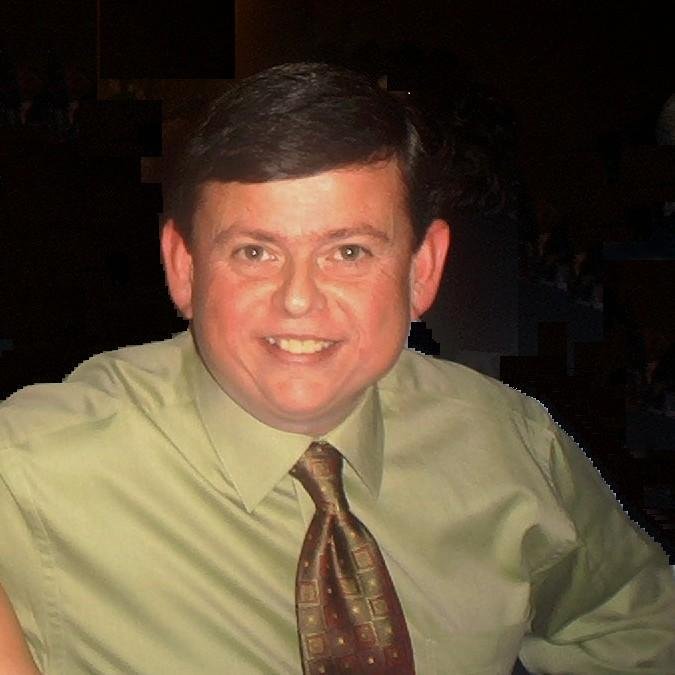An Interview with Fern Dominelli
An Interview with Fern Dominelli
By: Rob Kirsic
December 2023
Fern Dominelli is currently the Executive Director for the Northern Ontario Service Deliverers Association (NOSDA). He retired as CAO of the Manitoulin-Sudbury District Services Board in August 2022. Fern started with the Manitoulin-Sudbury DSB as a Program Manager in August 2000 and then became Chief Administrative Officer in 2009. Prior to his work with the Manitoulin-Sudbury DSB, he was with the Ministry of Community & Social Services for 18 years.
When he first began his work with the Ministry, Fern was a front-line Income Maintenance Officer in Sudbury. In 1986, he accepted the position of Program Review Officer and became involved in many special projects and working groups through these years, as well as doing a great deal of travelling across the province assisting with program and operational reviews. As CAO with Manitoulin-Sudbury DSB he participated and chaired several provincial committees. One of Fern’s top priorities over the years was implementing Human Services Integration within the Manitoulin-Sudbury District Services Board. The goal was to provide staff with enough information and training that they can provide the people we served with the right basic information and resources while only having to tell their storey once.
He is also one of the recipients of the 2023 OMSSA Patti Moore Human Services Integration Award. OMSSA sat down with Fern for an interview to discuss his work and experiences over his career within the Manitoulin-Sudbury DSSAB and NOSDA, and various human services topics.
This interview has been edited and condensed.
OMSSA: Human services integration can be a challenge but also offer opportunities for better service delivery and collaboration. In your experience, what should up-and-coming human services leaders across Ontario know and think about when it comes to human service integration and delivery?

It's one of the areas that we can always improve in communities across southern Ontario because programs tend to be across the whole city whereas DSSABs only have four programs, but it is a direct point of contact with residents.
So when a client walks in the door for housing, child care, Ontario Works (OW), you are talking to the same Caseworker. In a large organization, they have three different people helping. But, if they were all connected somehow, and they all knew about my situation, that's what integration really is about.
OMSSA: As a leader, and based on your experience, what can human service leaders and front-line staff do to embrace innovation and out-of-the-box thinking for their teams and clients?
FD: One of the things we don't do enough of is talk to our clients. Talk to your client and ask how is our service doing? Where are we failing? How can we help? When you think about innovation, and anything new, take the time to go and talk to the clients and see what they think, because what you may think is a great idea, they may think is ridiculous. Sometimes it is simply educating clients why you can or can’t do something. There needs to be a balance there.
An example was one of the staff in our office was putting out candy on the front desk for the clients. So one of the other staff asked, why don’t we put out some fruit? So we started putting fresh fruit on the counter. We know who is coming in, and some of our clients are very hungry, but it worked. It was something very simple because staff meet a lot of homeless clients who were walking in and are obviously hungry, but we have no way to feed them. In some cases, we have bags and give them toiletries like razors and shaving cream, the kind of stuff they would not necessarily have. So, it is simple stuff sometimes with clients and finding out what they want.
OMSSA: As the Executive Director of NOSDA, and previously the CAO of the Manitoulin-Sudbury DSSAB, is there something you are noticing in your community/in Northern Ontario that OMSSA Members should know about and might help them in their roles and responsibilities?
FD: When you look at these services, they all end up becoming health services. A lot of our clients experience what we call the welfare wall. They come in, and we give them drug, dental, transportation, and other services and then they're trapped behind this wall. If they get more than minimum wage jobs, if they earn that extra dollar, they get cut off from all these benefits. Their child care goes up and their social housing rent goes up.

Once our staff realize after sitting down with clients that they eventually recognize there's hidden issues, like addiction, here. There is a mental health issue, but it takes a while to recognize what that issue is, but it is normally seen by the client's failure to show up or meet their commitments. And there’s also a lot of times abuse is happening in the home and we’re putting more pressure on families, and that is where we need to be a lot more sensitive.
And there’s a lack of coordination with other agencies like Children’s Aid Societies (CAS). It drove me crazy that CAS was so guarded with providing information, so we could have a mom with three kids coming in to see us, and we're giving her grief because we don't have her information or some form. Meanwhile, CAS is investigating and possibly ready to remove her children for something that we are totally unaware of.
I always preach that there should be a way for us to work with CAS to say, okay, this family has an issue going on right now, let's not put any other pressure on them and let them deal with that issue first. There has been some local success in this area based on local staff relationships, but it is not widespread.
If there is a way for us to help a family through that first, that’s important. Otherwise everyone's just bombarding the family with legal issues, maybe the courts or police, and then you've got us sitting here asking questions about receipts. The family is at their max. How do we work together so that we can relieve some of that pressure off the family that we don't even recognize? Sometimes we are putting additional pressure on the family that I find the hardest part in this job because we don't see all the pieces to know what that family is going through.
The establishment of Ontario Health Teams is a major change in the health care system. Some have great relationships, while others have limited participation at the table. It is all about local relationships. If you're a new person, an up-and-comer in this field, talk to your community. Go meet with the community agencies, go find out what they are doing and try to make sure you are working together and not duplicating services.
Create a community table, even if you are meeting once a year, to see what everyone is up to. Whether it is the Lions, the Elks, or other groups, all those agencies provide services. Have a conversation.
OMSSA: What lessons can OMSSA Members in the Southern Ontario learn about the work happening in the North?
FD: I think Members in the north are the canary in the coal mine, so to speak, because in southern Ontario, in the larger centers, they don't necessarily see issues with new policies, new programs right away. We see things right away and can tell quickly if something will or won’t work, so it is just a question of recognizing that.
It takes larger centres longer to find out what the issues are, because you're dealing with them at a higher, more strategic level, whereas in smaller organizations issues get to the top a lot quicker. When the northern members say something, it is because we see it first, not because we are any brighter than anyone else.
When it comes to sharing information between programs and privacy concerns, we created what we call an interdepartmental consent form, and I would tell my staff that if you're looking to help the client that we use the form. That's what it is there for. If you are looking to go after a client for fraud or something negative, the form does not come in to play. Consider this form as a way to help the client not to penalize them. That was one of the biggest things in the north that were ahead of the curve in that instance.
OMSSA: Looking back on your career to date, are there one or two achievements that stand out to you? What are they and what makes them stand out to you?
FD: I think my biggest achievement was I created the Director of Integrated Services so all three managers (child care, housing, OW) now had to go to one person. Before we were all competing for the CAO’s approval and everything was disjointed.
With the Director of Integrated Services, now it's all going through the same lens and that changed everything. One of the biggest changes that I remember seeing once we did that was in social housing and evictions. We would have clients who were being evicted who would come to us for help to pay the rent because they are getting evicted. Once I became the Director, I said that no one gets evicted from any property until they least have at least one interaction with an OW Case Manager regardless of their income type. We need to have at least a point of contact with someone to help them, and if they don’t want to talk to us, then follow the eviction process.
This change saved money because we were not wasting money on evictions notices. It was huge because we are putting all this pressure and stress on people when their situations can be resolved. I wanted everyone to talk to each other before you issue the notice.
The other one which is kind of different in the north is paramedic services. What I found out when I was CAO was that when a tenant in social housing called the ambulance, the paramedics would get to the front door and knock, but if the door is locked and the person is not answering, they called the police, who called the fire department to put an axe to the door to get to the person, which took considerable time when someone is having a health emergency. I said, wait a minute, why don’t we give paramedics a key to the emergency box? Do your process by going to the person's door and knock. If they don't answer, go back and get the key and use it. That was true integration right there.
And in Kenora, for example, one of the great things with community paramedics is they are putting a Case Manager in the vehicle. When they go see a person, it is total wraparound services. Now you have health services there and that is true integration. We also go to our social housing buildings and provide wellness clinics, do blood pressure checks, talk about their pills, so it was great. We started to integrate that way. The other one area that I think Donna (Stewart – CAO of Manitoulin-Sudbury DSSAB) gets the credit for is we had a family health team move into one of our buildings. We freed up a unit in an area where there were no services and the family health team set up in there. The whole community benefited from the services provided in our community housing building.
OMSSA: Is there anything else you would like to say that I have not asked about?
FD: I would just say to use OMSSA to talk through what you are facing. We don't need to recreate the wheel because somebody has already done it. Take any opportunity that gives you the chance to communicate with each other, even with the Requests for Information over email that goes out to the whole province. Share information with each other because that is how you learn and someone has inevitably done it.
I used to work for the Province as a Program Review Officer, so I used to audit welfare, and I would have managers call me who've been there 30 years asking me if they can do something. What I always tell people is to make good decisions and document them. Document why you did it and if it made sense, go ahead.
An example of this is this town where half the town was unorganized and the other half was organized, there were ten guys, five on each side, on welfare but they were getting jobs that needed chainsaws. We paid for five chainsaws but were told you can’t buy them. We would make our money back by having these guys working and off welfare for six months.
There’s a single mom in Espanola who worked at Canadian Tire but child care is on the other side of town with no transit system. Her solution to get across town was a 10-speed bike, so we gave it to her. We were told you can’t do that. Well, why not? We are not telling her to do this, it is this woman’s idea, so let’s pay for it. Meanwhile, if she works next month, we are ahead. But we are told you can’t do this. No one is ever going to tell me that this was the wrong decision because it made common sense, but if you look at the directives, the bike is not listed there.
But that's why I think common sense people need to make good decisions again. OW staff make decisions in minutes and hours. We need to make decisions today, and I would tell people, if I don’t get back to you by end of the day, do what you have to do, but document it. You can't wait for me. Document it and we will live with it later. That was a reality.
OMSSA: Thank you, Fern.
About the Author

Rob Kirsic is the Communications and Member Engagement Manager with OMSSA. Rob started with OMSSA in 2021 and has over 15 years of communications and public relations experience in the private, public, and not-for-profit sectors.
Blog categories: Interview, Leadership, Human Services, Human Services Delivery, Human Services Integration, Ontario Works, NOSDA
